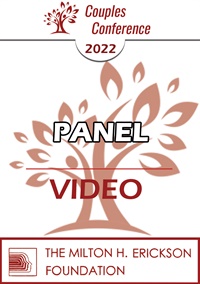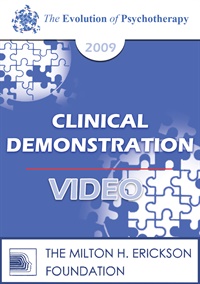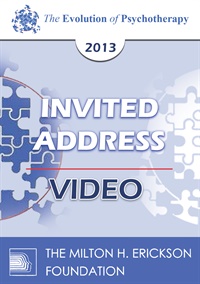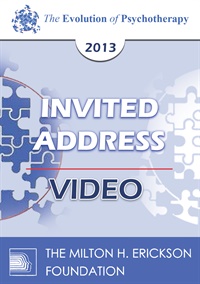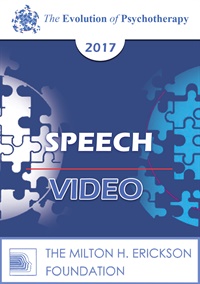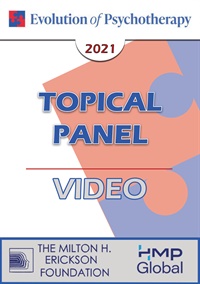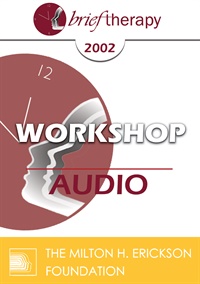
- Average Rating:
- Not yet rated
- Topic Areas:
- Workshops | Interviewing | Brief Therapy | Motivation | Therapeutic Relationship | Therapist Development
- Categories:
- Brief Therapy Conference | Brief Therapy Conference 2002
- Faculty:
- Steve De Shazer, MSSW
- Duration:
- 2:13:08
- Format:
- Audio Only
- Original Program Date:
- Dec 12, 2002
- Short Description:
- Skilled brief therapists just ask miracle questions or scaling questions. They must know how to ask questions in ways that do not undermine client motivation.
- Price:
- $15.00 - Base Price
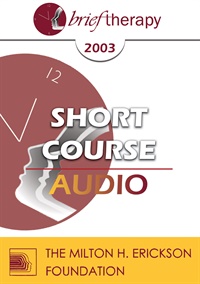
- Average Rating:
- Not yet rated
- Topic Areas:
- Short Courses | Addiction | Brief Therapy | Psychotherapy | Abuse | Motivation | Personality Disorders
- Categories:
- Brief Therapy Conference | Brief Therapy Conference 2003
- Faculty:
- Ralph Armstrong, MD
- Duration:
- 1:37:13
- Format:
- Audio Only
- Original Program Date:
- Dec 13, 2003
- Short Description:
- Motivation is crucial to successful recovery from Substance Use Disorders. Fifteen DSM IV conditions reduce the motivation needed to bond with programs that assist in abstinence. Child abuse and neglect are frequent in substance abusers, and a conceptualization of its role in substance abuse is given. Therapy for sequelae such as schizoid personality, resentment, pessimism and others are described. with treatment of Axis I and II disorders accomplished, and the effects of abuse/neglect allayed, involvement with 12 step programs is more likely.
- Price:
- $15.00 - Base Price
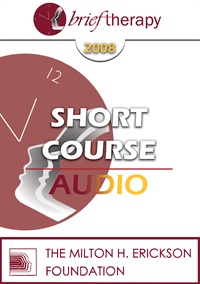
- Average Rating:
- Not yet rated
- Topic Areas:
- Short Courses | Interviewing | Solution Oriented Approach | Brief Therapy | Motivation
- Categories:
- Brief Therapy Conference | Brief Therapy Conference 2008
- Faculty:
- Lindasue Marshall, LCSW | Ernest Marshall, MSW
- Duration:
- 1:29:49
- Format:
- Audio Only
- Original Program Date:
- Dec 11, 2008
- Short Description:
- Interventions often fail because the client is not yet truly motivated for change. Motivational interviewing elicits intrinsic motivation and is highly effective in conjunction with Solution Focused Brief Therapy (SFBT). Participants will recognize language demonstrating readiness for change and learn how to integrate SFBT interventions to bring about lasting change.
- Price:
- $15.00 - Base Price
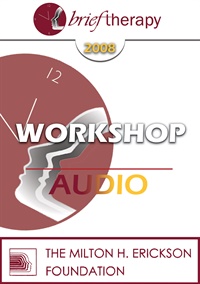
- Average Rating:
- Not yet rated
- Topic Areas:
- Workshops | Brief Therapy | Motivation | Psychotherapy
- Categories:
- Brief Therapy Conference | Brief Therapy Conference 2008
- Faculty:
- Bill O'Hanlon, MS
- Duration:
- 1:52:21
- Format:
- Audio Only
- Original Program Date:
- Dec 14, 2008
- Short Description:
- "If you want truly to understand something, try to change it." - Kurt Lewin. Change is one of the most challenging aspects of life. Yet there are identifiable ways we all change. In this short session, you will learn the seven major ways people change and how to identify and tap into people's natural motivational styles to create change.
- Price:
- $15.00 - Base Price
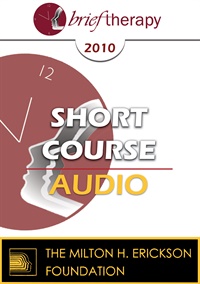
- Average Rating:
- Not yet rated
- Topic Areas:
- Short Courses | Brief Therapy | Burnout | Motivation
- Categories:
- Brief Therapy Conference | Brief Therapy Conference 2010
- Faculty:
- Neil Fiore, PhD
- Duration:
- 1:34:16
- Format:
- Audio Only
- Original Program Date:
- Dec 09, 2010
- Short Description:
- Clients who procrastinate feel stuck, lack motivation, and reveal their ambivalence by stating “I have to finish all this work but I don’t want to.” This workshop builds self-efficacy by integrating conflicting parts with the Prefrontal Cortex Executive Function of choice. Optimal Performance and desensitization techniques focus clients on “choosing when to start,” separating self-worth from work, and planning alternatives to avoidant behaviors.
- Price:
- $15.00 - Base Price
Tags: Procrastination Burnout Motivation
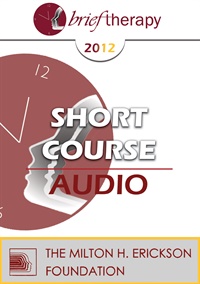
- Average Rating:
- Not yet rated
- Topic Areas:
- Short Courses | Brief Therapy | Cognitive Behavior Therapy (CBT) | Ericksonian Hypnosis and Therapy Techniques | Motivation | Self-Esteem
- Categories:
- Brief Therapy Conference | Brief Therapy Conference 2012
- Faculty:
- Norma Barretta, PhD | Phillip Barretta, MA, MFT
- Duration:
- 1:30:41
- Format:
- Audio Only
- Original Program Date:
- Dec 05, 2012
- Short Description:
- This short course explores a competency-based, action-oriented approach to brief therapy designed to help people move toward what they want rather than stay stuck analyzing what went wrong. Participants learn how sensory acuity, language, physiology, and small behavioral shifts can rapidly change emotional states, expand choice, and create durable change. The session blends demonstration, metaphor, and practical tools to show how therapists can interrupt unhelpful patterns, activate client strengths, and make brief therapy more effective and lasting.
- Price:
- $15.00 - Base Price
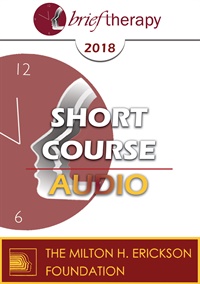
- Average Rating:
- Not yet rated
- Topic Areas:
- Short Courses | Brief Therapy | Motivation | Utilization
- Categories:
- Brief Therapy Conference | Brief Therapy Conference 2018
- Faculty:
- John Lentz, D. Min.
- Duration:
- 1:29:35
- Format:
- Audio Only
- Original Program Date:
- Dec 06, 2018
- Short Description:
- While this workshop teaches useful tools for brief therapy, it also will give participants positive experiences for themselves. This workshop evokes experiences that lead clients to discover solutions that work. Whether the client experiences their solution, or has a dramatic shift in understanding their options it often leads to motivation and success.
- Price:
- $15.00 - Base Price
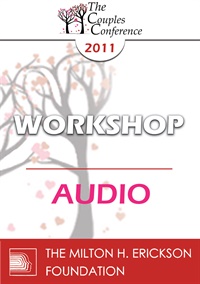
- Average Rating:
- Not yet rated
- Topic Areas:
- Couples Therapy | Workshops | Motivation | Neurobiology | Therapist Development
- Categories:
- Couples Conference | Couples Conference 2011
- Faculty:
- Jette Simon
- Duration:
- 1:41:46
- Format:
- Audio Only
- Original Program Date:
- Apr 01, 2011
- Short Description:
- Knowing how to elicit positive emotion even in couples steeped in intensely negative interactions is the key to providing the motivation for change. In this workshop, we’ll explore a variety of ways for creating “magical moments” in the therapy hour that offer a new template for couples, otherwise trapped in dysfunction, to allay repetitive cycles. You’ll learn how to use tools like focusing, sentence stems, doubling and directives to invite couples into new kinds of experience of connection. We’ll also examine the neurobiological principles that enable partners to expect and attract more positive experiences from each other.
- Price:
- $15.00 - Base Price
- Average Rating:
- Not yet rated
- Topic Areas:
- Topical Panels | Couples Therapy | Motivation | Therapist Development
- Categories:
- Couples Conference | Couples Conference 2022 | Pioneers in Couples and Family Therapy
- Faculty:
- Peter Pearson, PhD | Tammy Nelson, PhD | William Doherty, PhD | Elliott Connie, MA, LPC
- Course Levels:
- Master Degree or Higher in Health-Related Field
- Duration:
- 57:36
- Format:
- Audio and Video
- Original Program Date:
- Jun 24, 2022
- Short Description:
- The panel examines motivation in couples, focusing on how therapists can navigate differing levels of motivation. Approaches include assuming both are motivated, addressing ambivalence through structured decision-making, balancing connection and independence, and fostering teamwork. Emphasis is placed on evoking hope, encouraging emotional risk-taking, and creating a shared vision for the relationship.
- Price:
- $59.00 - Base Price
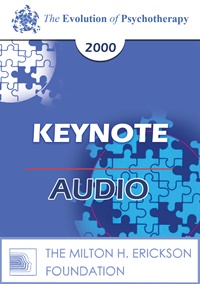
- Average Rating:
- Not yet rated
- Topic Areas:
- Keynotes | Social Psychology | Research | Communication | Motivation
- Categories:
- Evolution of Psychotherapy | Evolution of Psychotherapy 2000
- Faculty:
- Elliot Aronson, Ph.D.
- Duration:
- 1 Hour 3 Minutes
- Format:
- Audio Only
- Original Program Date:
- May 28, 2000
- Short Description:
- This talk brings social psychology to life through vivid, often surprising stories about how people talk themselves into change. Rather than relying on advice or persuasion, it shows how situations that evoke integrity, empathy, and personal responsibility can lead to lasting shifts in behavior. Therapists and students will find fresh ways to think about motivation, resistance, and change, with ideas that naturally echo many therapeutic moments in the consulting room.
- Price:
- $15.00 - Base Price
- Average Rating:
- Not yet rated
- Topic Areas:
- State of the Art Address | Motivation | Psychotherapy | Therapist Development
- Categories:
- Evolution of Psychotherapy | Evolution of Psychotherapy 2005
- Faculty:
- Albert Bandura
- Course Levels:
- Master Degree or Higher in Health-Related Field
- Duration:
- 55:39
- Format:
- Audio and Video
- Original Program Date:
- Dec 09, 2005
- Short Description:
- This address will focus on self-efficacy as the foundation of human motivation, well-being and accomplishments. Whatever other factors may serve as guides and motivators, they are rooted in the core belief that one has the power to effect changes. This address will analyze the source of people's beliefs in their efficacy, their cognitive, motivational and emotional effects, and how to build a resilient sense of efficacy for personal and social betterment.
- Price:
-
Sale is $29.00
price reduced from Base Price - $59.00
- Average Rating:
- Not yet rated
- Topic Areas:
- Clinical Demonstrations | Psychotherapy | Relationships | Therapeutic Relationship | Motivation | Goals of the Therapist
- Categories:
- Evolution of Psychotherapy | Evolution of Psychotherapy 2009
- Faculty:
- Erving Polster, PhD
- Course Levels:
- Master Degree or Higher in Health-Related Field
- Duration:
- 59:32
- Format:
- Audio and Video
- Original Program Date:
- Dec 11, 2009
- Short Description:
- Educational Objectives: To describe how “immediate nextness”, followed continuingly, will lead to the achievement of therapeutic goals. To describe how absorbed relationship is a leavening process for the increased motivation of clients.
- Price:
-
Sale is $29.00
price reduced from Base Price - $59.00
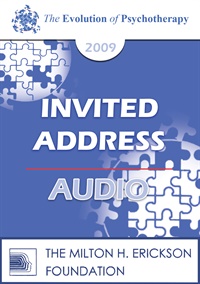
- Average Rating:
- Not yet rated
- Topic Areas:
- Invited Addresses | Psychotherapy | Motivation | Research
- Categories:
- Evolution of Psychotherapy | Evolution of Psychotherapy 2009
- Faculty:
- Albert Bandura
- Duration:
- 1 Hour 4 Minutes
- Format:
- Audio Only
- Original Program Date:
- Dec 12, 2009
- Short Description:
- This address traces how beliefs about personal agency shape motivation, resilience, emotional health, and the ability to change entrenched behavior. Drawing on decades of research, vivid clinical examples, and large-scale social interventions, it shows how self-efficacy is built through mastery, modeling, and meaningful action rather than insight alone. The talk moves fluidly from therapy rooms to global public health and social change, offering therapists and students a powerful framework for understanding how people learn to face fear, recover from setbacks, and reshape their lives and communities.
- Price:
- $15.00 - Base Price
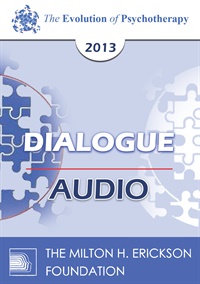
- Average Rating:
- Not yet rated
- Topic Areas:
- Psychotherapy | Dialogues | Acceptance and Commitment Therapy (ACT) | Interviewing | Motivation
- Categories:
- Evolution of Psychotherapy | Evolution of Psychotherapy 2013
- Faculty:
- Steven Hayes, PhD | William Miller, PhD
- Duration:
- 1 Hour 6 Minutes
- Format:
- Audio Only
- Original Program Date:
- Dec 13, 2013
- Short Description:
- EP13 Dialogue 12 – Acceptance & Commitment Therapy and Motivational Interviewing – Steven Hayes, PhD and William Miller, PhD Moderator: Robert Bohanske, PhD Educational Objectives: Given a topic, describe the differing approaches to psychotherapy, and identify the strengths and weaknesses of each approach.
- Price:
- $15.00 - Base Price
- Average Rating:
- Not yet rated
- Topic Areas:
- Invited Addresses | Psychotherapy | Research | Resistance | Motivation
- Categories:
- Evolution of Psychotherapy | Evolution of Psychotherapy 2013
- Faculty:
- David Burns, MD
- Course Levels:
- Master Degree or Higher in Health-Related Field
- Duration:
- 59:00
- Format:
- Audio and Video
- Original Program Date:
- Dec 14, 2013
- Short Description:
- New research indicates that motivation influences how we think, feel, and behave, as much as cognitions, and that the failure to address resistance is the cause of most therapeutic failure. Dr. Burns will describe the eight most common forms of resistance and present powerful new techniques to melt away resistance before using any cognitive, behavioral, or interpersonal techniques.
- Price:
-
Sale is $29.00
price reduced from Base Price - $59.00
EP13 Invited Address 17 – Motivational Interviewing and The Language of Change – William Miller, PhD
- Average Rating:
- Not yet rated
- Topic Areas:
- Invited Addresses | Interviewing | Therapist Development | Motivation | Psychotherapy
- Categories:
- Evolution of Psychotherapy | Evolution of Psychotherapy 2013
- Faculty:
- William Miller, PhD
- Course Levels:
- Master Degree or Higher in Health-Related Field
- Duration:
- 53:56
- Format:
- Audio and Video
- Original Program Date:
- Dec 15, 2013
- Short Description:
- Motivational interviewing facilitates a natural process of “talking oneself into change.” Dr. Miller will provide an overview of the clinical method of motivational interviewing and its underlying psycholinguistic processes, based on recent research linking therapist and client in-session speech to behavioral outcomes. These dynamics appear to predict successful outcomes across a variety of psychotherapies.
- Price:
-
Sale is $29.00
price reduced from Base Price - $59.00
Credit available - Click Here for more information
- Average Rating:
- Not yet rated
- Topic Areas:
- Speeches | Interviewing | Motivation | Therapeutic Relationship
- Categories:
- Evolution of Psychotherapy | Evolution of Psychotherapy 2017 | Online Continuing Education
- Faculty:
- William Miller, PhD
- Course Levels:
- Master Degree or Higher in Health-Related Field
- Duration:
- 55:47
- Format:
- Audio and Video
- Original Program Date:
- Dec 15, 2017
- Short Description:
- The clinical method of motivational interviewing (MI) evolved from the person-centered approach of Carl Rogers, maintaining his pioneering commitment to the scientific study of therapeutic processes and outcomes. The original developer of MI will summarize the development of this method, its linkage to Rogers, and research on its therapeutic processes, outcomes, and training.
- Price:
-
Sale is $29.00
price reduced from Base Price - $59.00
- Average Rating:
- Not yet rated
- Topic Areas:
- Topical Panels | Cognitive Psychology | Motivation | Neuro-Linguistic Programming (NLP) | Psychoanalysis | Resistance | Strategic Therapy
- Categories:
- Evolution of Psychotherapy | Evolution of Psychotherapy 2021 | Pioneers in Couples and Family Therapy
- Faculty:
- Robert Dilts, BA | Nancy McWilliams | Michael Miller | Cloe Madanes, HDL, LIC
- Course Levels:
- Master Degree or Higher in Health-Related Field
- Duration:
- 1 hour
- Format:
- Audio and Video
- Original Program Date:
- Dec 05, 2021
- Short Description:
- This panel explores diverse perspectives on resistance in therapy, featuring insights from leading experts. Dilts focuses on the relational aspect of resistance, while McWilliams draws from psychoanalytic theory to stress nonjudgmental responses. Miller explains how motivational interviewing reframes resistance as sustained talk and discord. Madanes offers a case study on using family dynamics to reduce resistance. The panel also addresses how COVID-19 has shaped client engagement and resistance in therapeutic settings.
- Price:
- $59.00 - Base Price
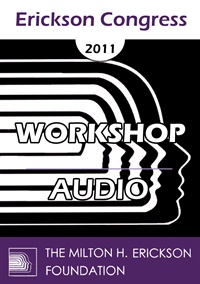
- Average Rating:
- Not yet rated
- Topic Areas:
- Workshops | Ericksonian Hypnosis and Therapy Techniques | Homework | Motivation
- Categories:
- Erickson Congress | Erickson Congress 2011
- Faculty:
- Michael Yapko, PhD
- Duration:
- 59 Minutes
- Format:
- Audio Only
- Original Program Date:
- Dec 07, 2011
- Short Description:
- This workshop presents a practical, research-informed approach to treating depression through behavioral activation and hypnosis. Using stories, demonstrations, and hypnotic exercises, it illustrates how small, consistent actions can break cycles of rumination and passivity. Participants learn to build expectancy, structure effective homework, and use hypnotic suggestion to promote movement, optimism, and engagement—helping clients translate insight into meaningful, lasting change.
- Price:
- $20.00 - Base Price
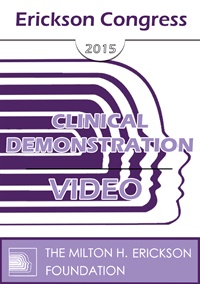
- Average Rating:
- Not yet rated
- Topic Areas:
- Clinical Demonstrations | Therapist Development | Treatment Planning | Brief Therapy | Motivation
- Categories:
- Erickson Congress | Erickson Congress 2015
- Faculty:
- Michael Munion, MA, LPC
- Course Levels:
- Master Degree or Higher in Health-Related Field
- Duration:
- 00:54:00
- Format:
- Audio and Video
- Original Program Date:
- Dec 10, 2015
- Short Description:
- Change potential is enhanced by creating success experience during the therapeutic encounter, and by developing individualized tools to reinforce change on an ongoing basis. This demonstration assesses personal resources, motivation, and develops an individualized change plan.
- Price:
-
Sale is $29.00
price reduced from Base Price - $59.00
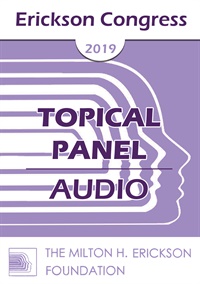
- Average Rating:
- Not yet rated
- Topic Areas:
- Workshops | Dialectic Behavior Therapy (DBT) | Interviewing | Motivation | Cancer | Depression | Resistance
- Categories:
- Erickson Congress | Erickson Congress 2019
- Faculty:
- Neil Fiore, PhD
- Duration:
- 1 Hour 54 Minutes
- Format:
- Audio Only
- Original Program Date:
- Dec 12, 2019
- Short Description:
- Training cancer patients in Stress Management and Dialectic Behavior Therapy methods to challenge worries, ineffective self-management, and ambivalence, using Motivational Interviewing:
- Price:
- $15.00 - Base Price
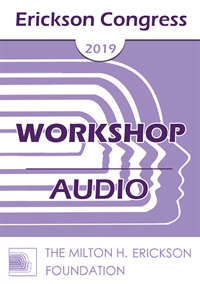
- Average Rating:
- Not yet rated
- Topic Areas:
- Workshops | Love | Brief Therapy | Motivation | Solution Oriented Approach | Therapist Development
- Categories:
- Erickson Congress | Erickson Congress 2019
- Faculty:
- Michael Munion, MA, LPC
- Duration:
- 1 Hour 31 Minutes
- Format:
- Audio Only
- Original Program Date:
- Dec 15, 2019
- Short Description:
- This workshop provides a framework for assessing clients along two important dimensions that impact therapeutic outcome: motivation and sense of agency (one’s perception of their ability to create change in their own lives). This assessment fosters interventions that enhance the capacity for strategic interventions to be truly brief and solution focused. The participant in this workshop will have the opportunity to observe and practice this approach.
- Price:
- $15.00 - Base Price


